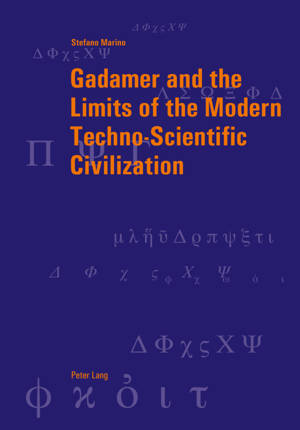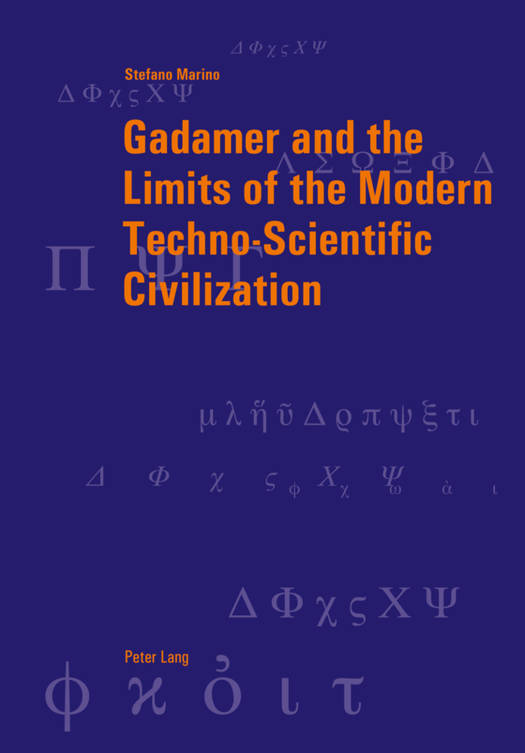
- Afhalen na 1 uur in een winkel met voorraad
- Gratis thuislevering in België vanaf € 30
- Ruim aanbod met 7 miljoen producten
- Afhalen na 1 uur in een winkel met voorraad
- Gratis thuislevering in België vanaf € 30
- Ruim aanbod met 7 miljoen producten
Zoeken
Gadamer and the Limits of the Modern Techno-Scientific Civilization
Stefano Marino
€ 87,45
+ 174 punten
Omschrijving
This book is an attempt to provide a systematic interpretation of Hans-Georg Gadamer's hermeneutics in light of one of the most important, interesting and debated questions of the present age: the question concerning the role played by science and technology in shaping our civilization. The author argues that this question lies at the heart of Gadamer's thought, and that such an approach to his philosophy might help to overcome some inveterate interpretive prejudices, like, for example, the idea of Gadamer as an anti-scientific and politically authoritarian thinker. In order to clarify these points, the author closely examines not only Gadamer's 1960 masterpiece, Wahrheit und Methode, or his main writings (later gathered in ten volumes of collected papers), but most of the works he published in his more than centenarian life, including many short essays, lectures and interviews. Gadamer's hermeneutics is seen as offering both an intriguing description of the main «pathologies» of the Western modern civilization, and a challenging proposal for «healing» the uneasiness and malaise of modernity by revaluating all forms of unmethodical, i.e. non-scientific, experience and knowledge.
Specificaties
Betrokkenen
- Auteur(s):
- Uitgeverij:
Inhoud
- Aantal bladzijden:
- 300
- Taal:
- Engels
- Reeks:
- Reeksnummer:
- nr. 43
Eigenschappen
- Productcode (EAN):
- 9783034306638
- Verschijningsdatum:
- 17/08/2011
- Uitvoering:
- Paperback
- Formaat:
- Trade paperback (VS)
- Afmetingen:
- 148 mm x 210 mm
- Gewicht:
- 389 g

Alleen bij Standaard Boekhandel
+ 174 punten op je klantenkaart van Standaard Boekhandel
Beoordelingen
We publiceren alleen reviews die voldoen aan de voorwaarden voor reviews. Bekijk onze voorwaarden voor reviews.











